How to capitalize on the growing upcycled foods movement? Make food from food waste.
Food waste is a global problem as their leftovers remain in large quantities in almost all parts of the supply chain in agricultural and processing enterprises.
Fruits and vegetables constitute the highest food waste. 45%-60% of fruits consist of waste — pulp, rind, cake left after pressing, kernels and seeds.
Despite the food surplus, more than 820 million people worldwide are undernourished, and one in nine people on earth is hungry.
According to UN experts, food waste ranges from 35 to 103 million tons. The total loss is about 62.5 million tons of products annually. 52.4 million tons ends up in landfills or incinerators, and another 10.1 million tons of agricultural waste is simply lost, which occurs in about a third (28%) of agricultural land.
But what if these byproducts containing nutrients and bioactive compounds could be processed for further human consumption? Moreover, fruit peel and pulp contain much more dietary fiber, phenolic compounds and have greater antioxidant properties in comparison with the fruits themselves.
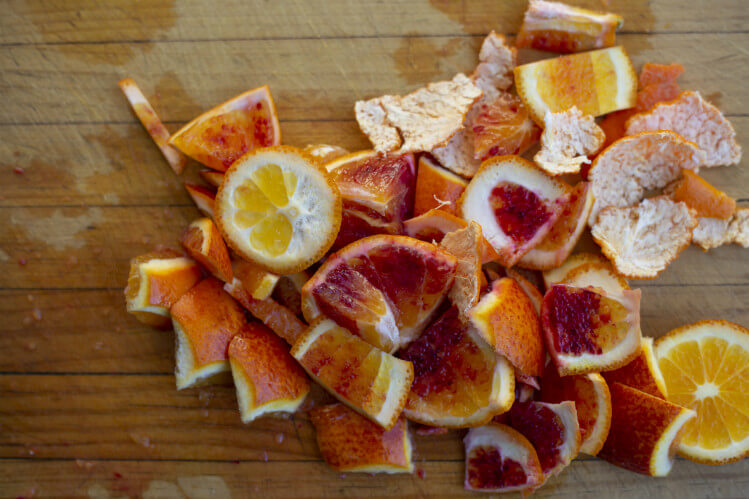
Reuse of recyclable products could minimize waste in the food chain, and instead of environmental and economic waste, food waste would create new, high quality products with perfectly decent nutritional ingredients.
And such movement does exist. Circular economy has been recently gaining momentum. Let’s explore how manufacturers are using the innovative upcycled foods trend to create simple, tasty, value-added products from food waste.
Category: snacks, pastry, soft drinks
Raw material: processed malt
ReGrained is one of the pioneers of the movement. The company produces snack bars made of BSG – brewers’ spent grain.
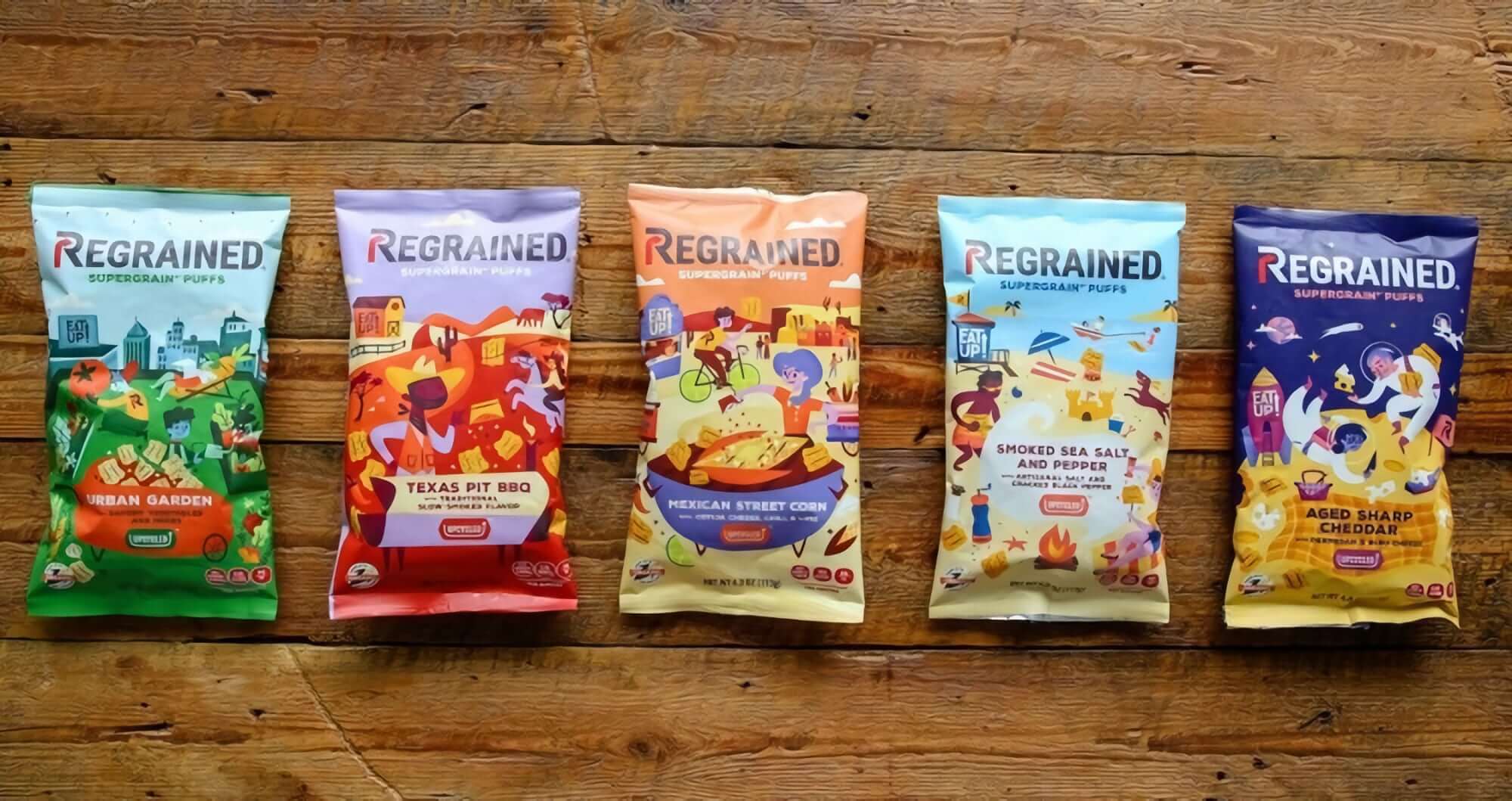
Barley is one of the oldest grains and it is actively used in beer production. Only sugar is «consumed» from grain during the technological process of brewing, while fiber, protein and other nutrients remain in the spent grain on a huge scale.
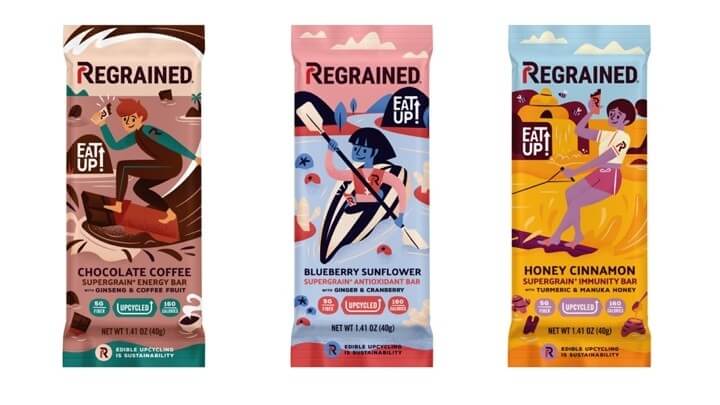
ReGrained is also famous for creating a new ingredient, SuperGrain+® flour, for which they have received a patent as a result of its innovative research. ReGrained SuperGrain+® is reminiscent of toasted flour — a functional product with great taste, flavor and an incredibly rich nutritional profile, with superior amounts of quality protein, fiber and other nutrients. In addition, SuperGrain+® is an excellent source of prebiotic fiber to support a healthy digestive system by providing an excellent environment for probiotic bacteria living in the intestines.
By launching SuperGrain+® flour on the market the manufacturer has moved into the class of ingredient producers. The company is now looking for other producers interested in supporting the upcycled foods movement with its «versatile, economical and sustainable grain blend that performs flawlessly for all commercial purposes».
Processed malt from breweries is a fairly popular raw material for upcycled food followers. For example, Anu Snacks makes natural energy bars from waste BSG grains, and the Rise Products project turns waste malt into flour that is high in protein and low in carbohydrates and cholesterol.
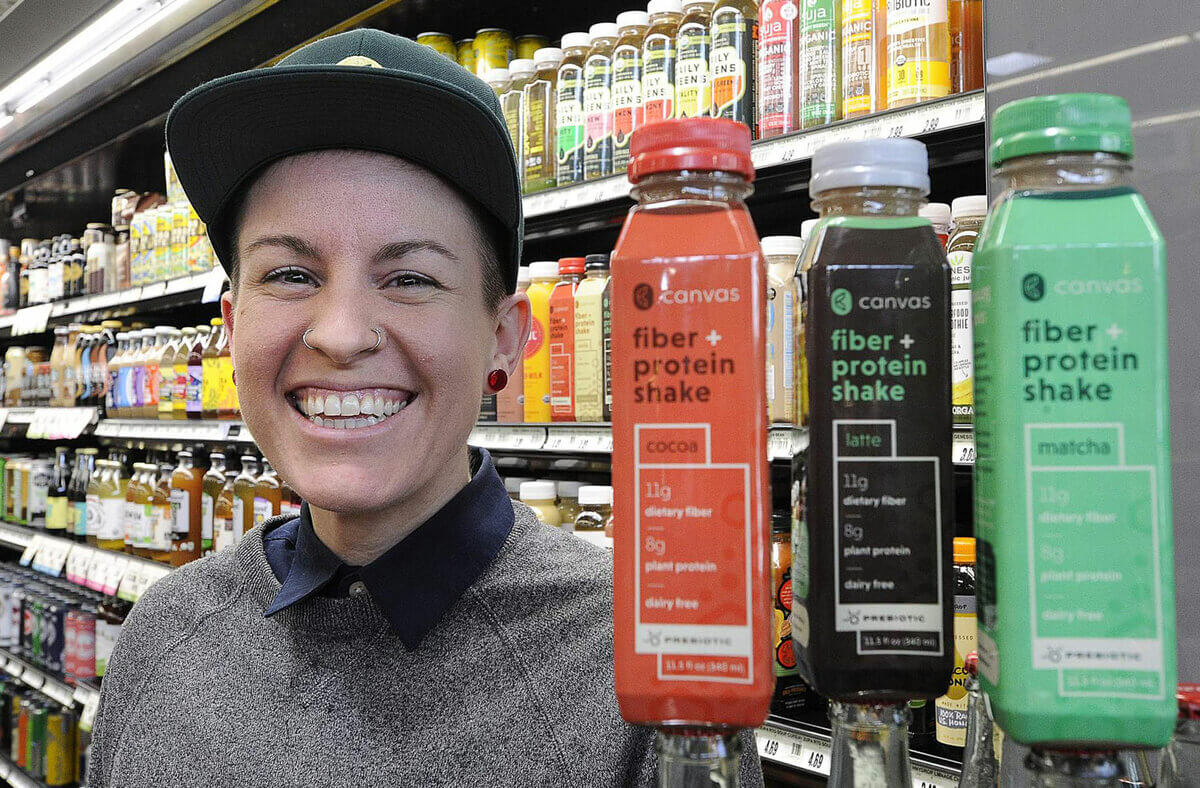
Canvas produces a plant-based drink of the same name with fiber and protein. The cocktail is popular with health-conscious consumers and is sold in New York City stores.
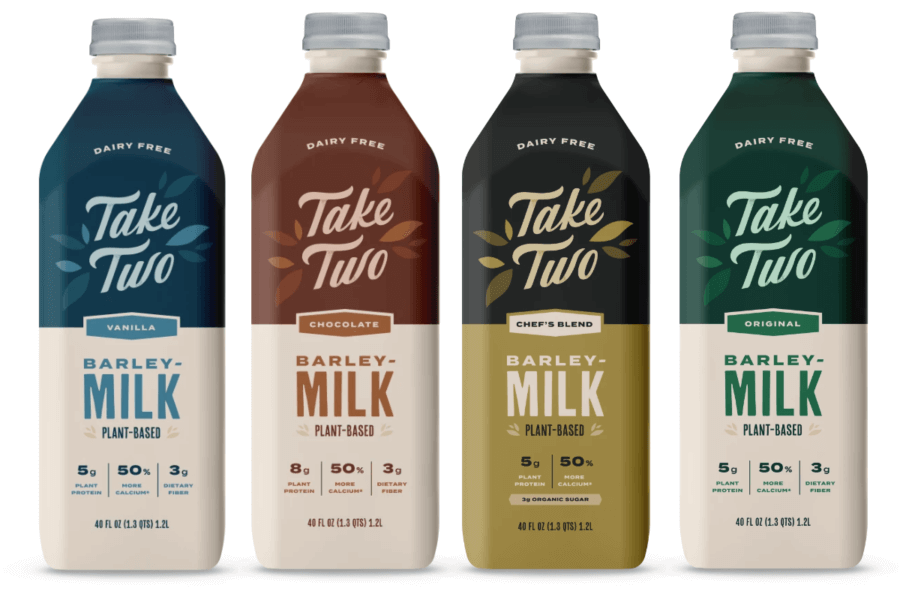
Take Two Foods produces plant-based milk from BSG, which is then sold to retail stores and cafes in the US Northwest and Los Angeles. Take Two Barley Milk contains whole protein, fiber, calcium, healthy fats and 50% less sugar than other plant-based flavored dairy products. Four flavors are available for sale: Original, Vanilla, Chocolate and Chef’s Blend, and the product profile boasts a flavor and functionality comparable to regular milk.
Category: flour
Raw material: waste coffee grounds, soy by-products
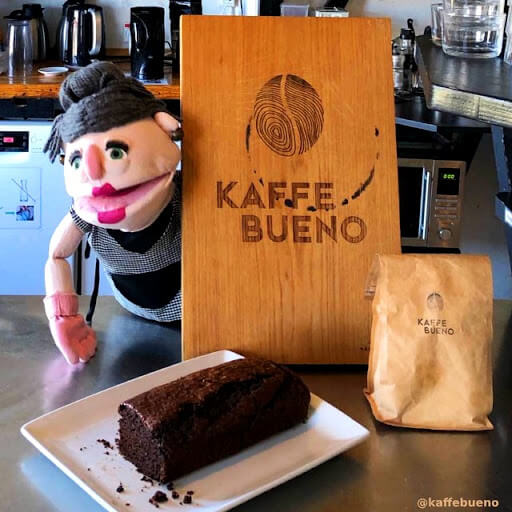
Speaking of flour, it’s worth mentioning a Danish startup Kaffe Bueno, which processes coffee grounds obtained from Copenhagen hotels into flour that can be used for baking. Previously discarded coffee grounds undergo an innovative biotechnological process to extract the oils now used in skin care products, leaving the resulting flour gluten-free.
There are 3 different flavors: nutty, caramel and chocolate. According to the company, the product contains three times more protein per gram than almond flour, fewer calories than buckwheat flour, less fat than coconut flour, more fiber than whole wheat flour, and more potassium than banana.
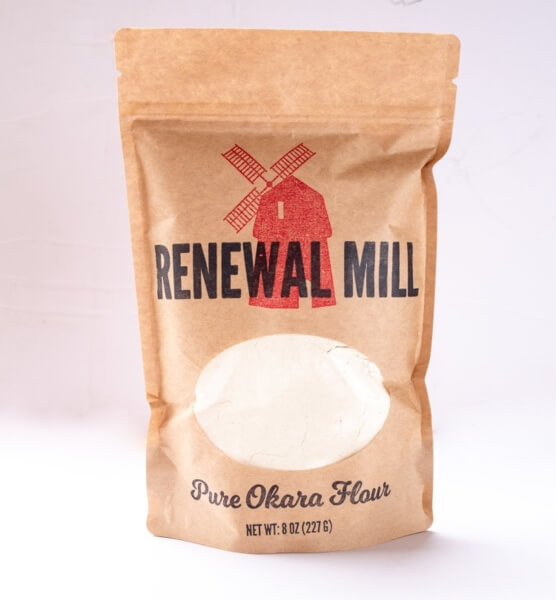
Renewal Mill is building a more sustainable food system by harvesting by-products from tofu, soy, and milk production and then processing them into a superfood, non-GMO organic Okara flour.
According to the company, Okara flour maintains heart health, strengthens muscles and helps to tighten the waist. It contains four times more fiber than whole wheat flour, is gluten-free, full of protein, low in carbohydrates, and identical in texture, taste or appearance to products made from traditional wheat flour. Unlike its classic counterpart, as the Renewal Mill calculated, the carbon footprint of Okara flour in the environment is about 40% less than its wheat counterpart.
Category: pastry, snacks
Raw material: soy by-products
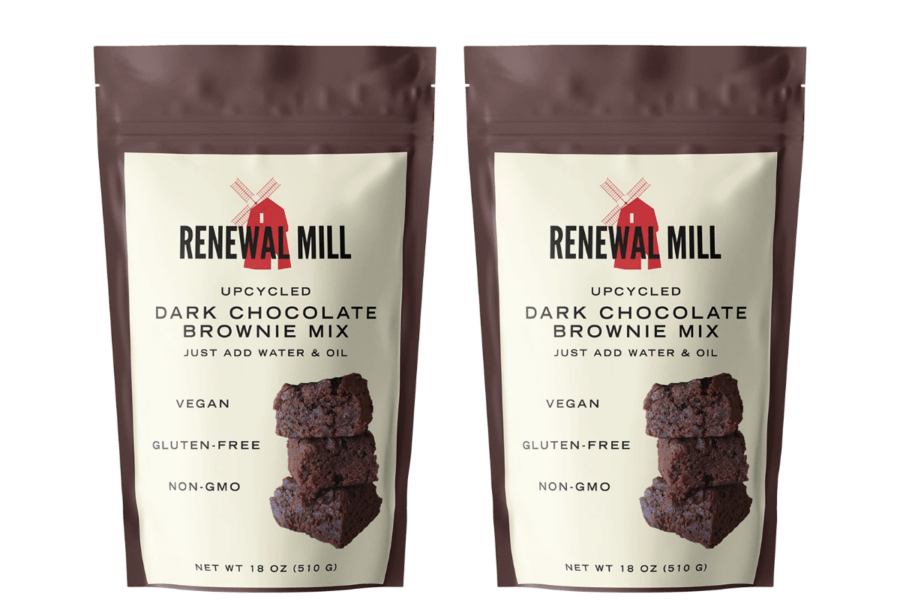
By the end of 2020, Renewal Mill unveiled a new vegan gluten-free chocolate brownie mix made with Okara flour with pea starch and vanilla, demonstrating the versatility of its innovation.
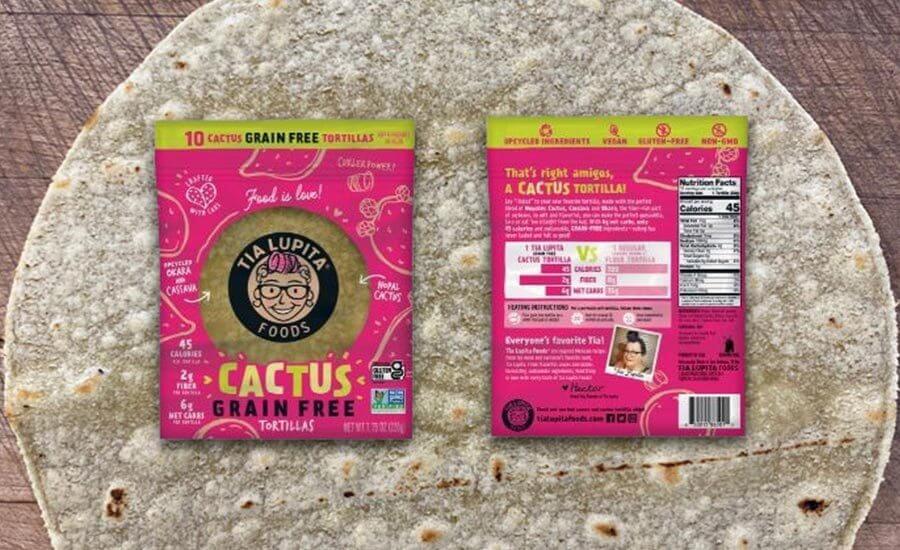
Renewal Mill’s collaboration with Mexican food brand Tia Lupita is another new addition to the production involving processed organic Okara flour. Tortillas are the latest addition to the popular line of grainless nopales cactus tortillas. Tia Lupita has been able to gain a decent market share in recent months compared to the classic players in this category. The novelty is already on sale on Amazon, and this summer it will hit the shelves of retail stores.
Category: pastry
Raw material: chocolate by-products
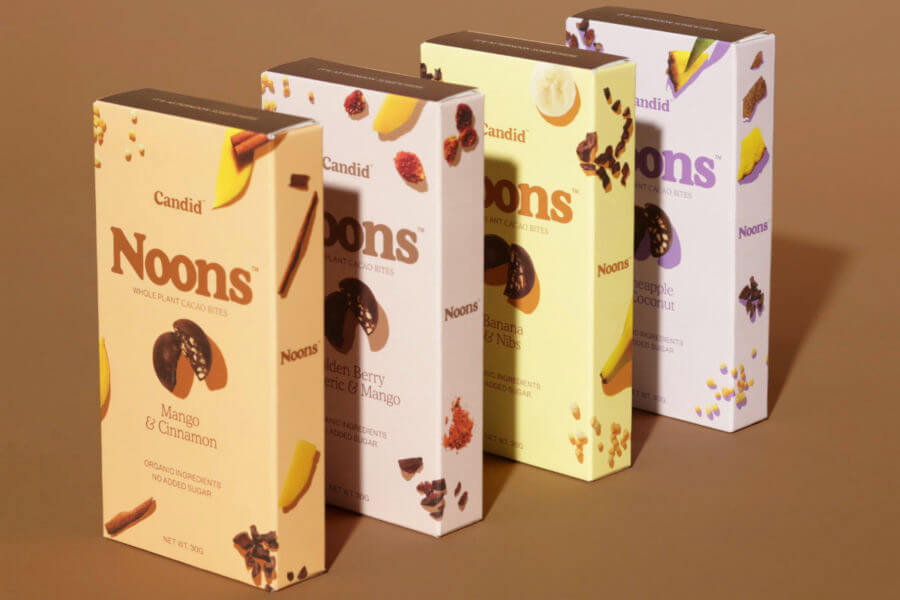
Noons, a whole grain chocolate snack from a New York-based chocolate maker Candid Holdings LLC, debuted in the market in January 2020. The “purest” chocolate products are made from processed cocoa and superfruits, which are often thrown away in the chocolate making process.
Noons is a product with mild sweetness and healthy vitamins and minerals such as antioxidants, magnesium, B vitamin, and has a deep dark chocolate flavor with light fruity notes, a tart finish and a crunchy texture. Paleo-friendly, vegan, gluten-free and GMO-free, free of emulsifiers, artificial sweeteners and cane sugar, Noons is available in 5 SKUs: Pineapple & Coconut, Banana Chips, Wild Berry, Turmeric & Mango, Mango & Cinnamon. The new product is currently sold in more than 100 retail outlets in New York and online. The plan for this year is to enter strategic markets throughout the United States.
Category: snacks
Raw material: substandard fruits and vegetables
Snacks are one of the favorite foods of upcycled foods followers. Consumers are desperately looking for wholesome foods for a wholesome snack, and manufacturers are eager to meet their demands.
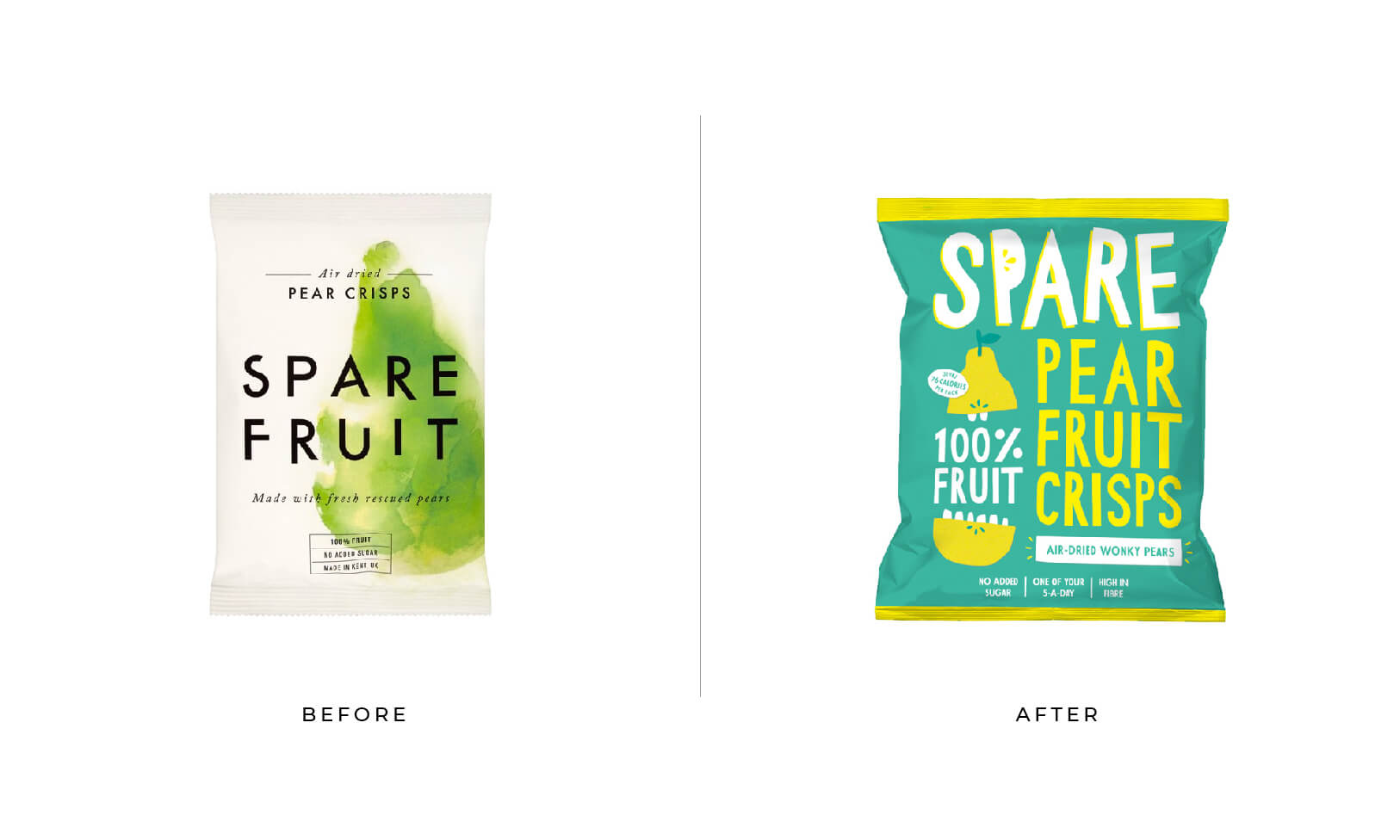
For example, British snack brand Spare Snacks founded in 2016, which makes organic Spare Fruit chips from substandard vegetables and fruits. Previously, similar raw materials from local farms were simply thrown away because of their not very pleasant appearance. Now the «ugly» pear, apple and beetroot are transformed into crispy snacks that can be enjoyable on their own or as a complement to breakfast cereals.
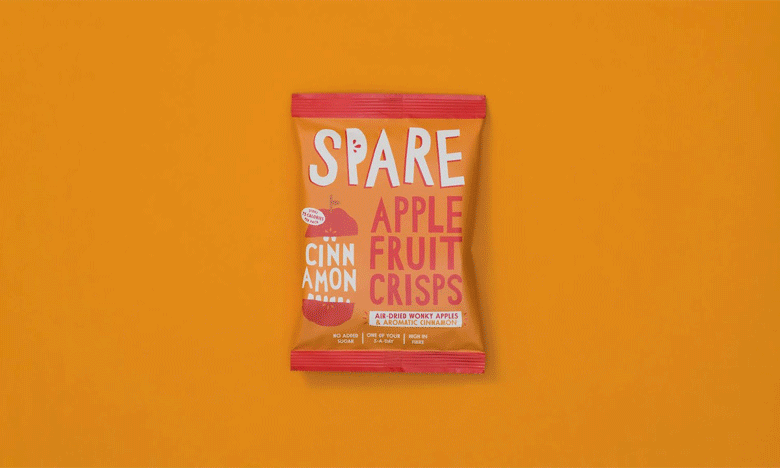
Spare Fruit has recently renewed its packaging and expanded its product line. Now 6 SKU of eco-friendly snacks, made from air-dried fruits and vegetables without added sugar, palm oil and artificial flavors, can be purchased in the manufacturer’s online store, and are also sold at specialized websites Planet Organic and Ocado.
Category: snacks
Raw material: salmon skin
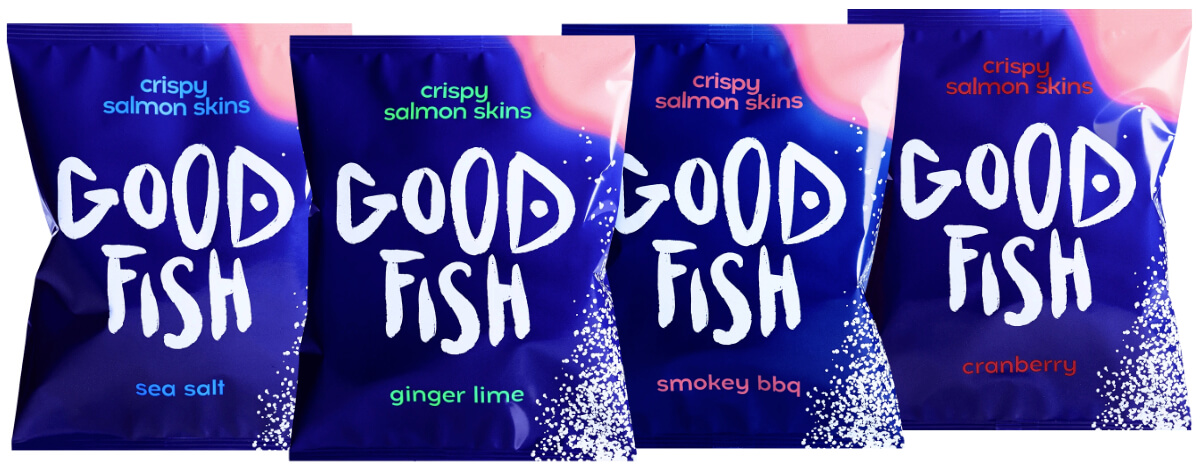
Salmon skin that was simply thrown away has been turned into a healthy snack by Goodfish startup. Made with 100% traceable wild Alaskan sockeye skin from organic fisheries in Bristol Bay, Alaska, Goodfish Crispy Chips come in four flavors: sea salt, chili lime, spicy kebab and tart cranberry.
Goodfish chips contain 7 grams of protein, 2600 mg of marine collagen, 800 mg of OMEGA-3 fatty acids. They are completely free of carbohydrates and only 90 calories. If you need to get used to the appearance a little, then fish chips crunch exactly the same as their usual «brothers».
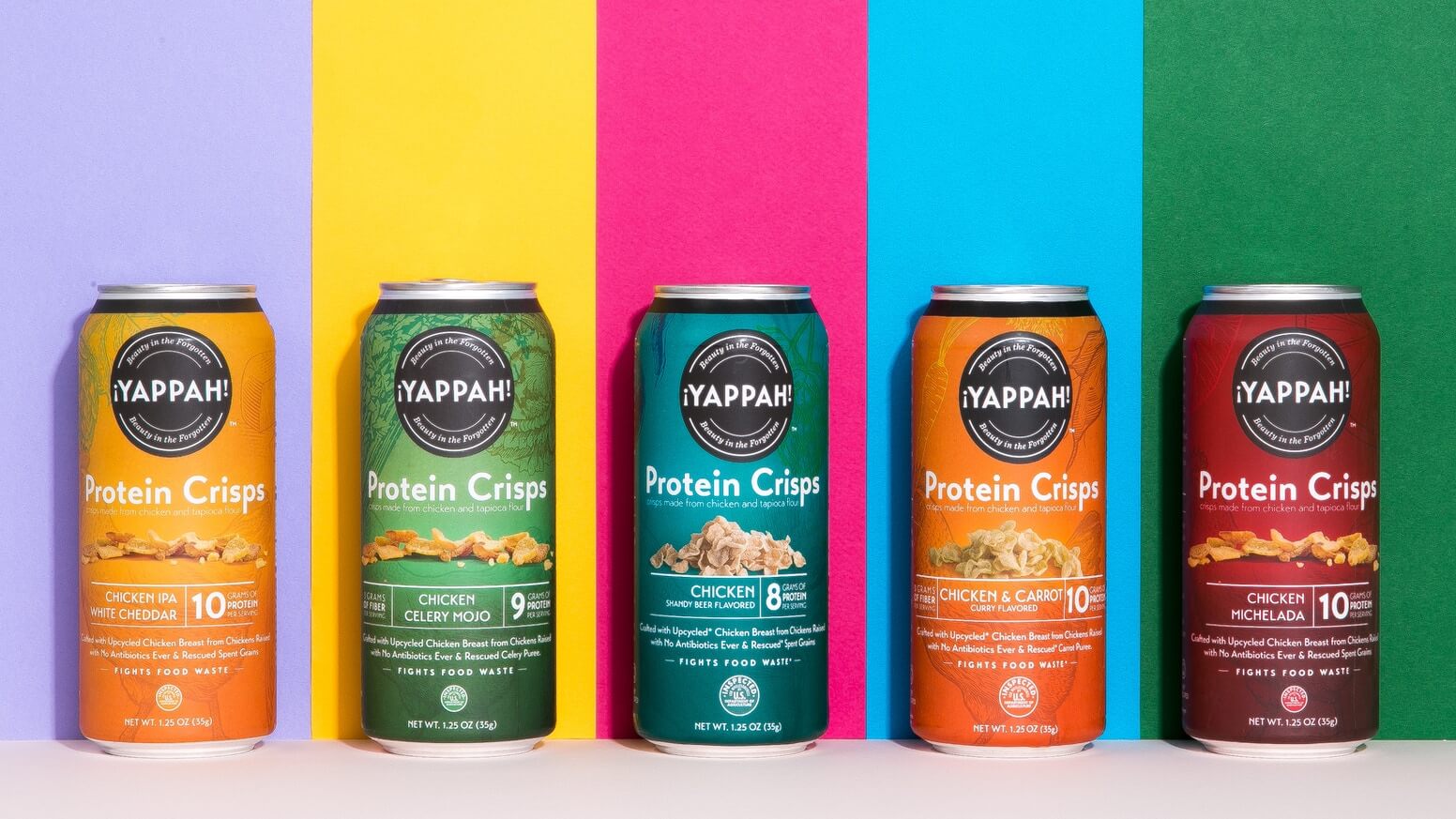
Let’s go on with the recently sensational Yappah! protein chips produced by Tyson Foods from chicken and vegetable scraps and waste grain from the Molson Coors brewery.
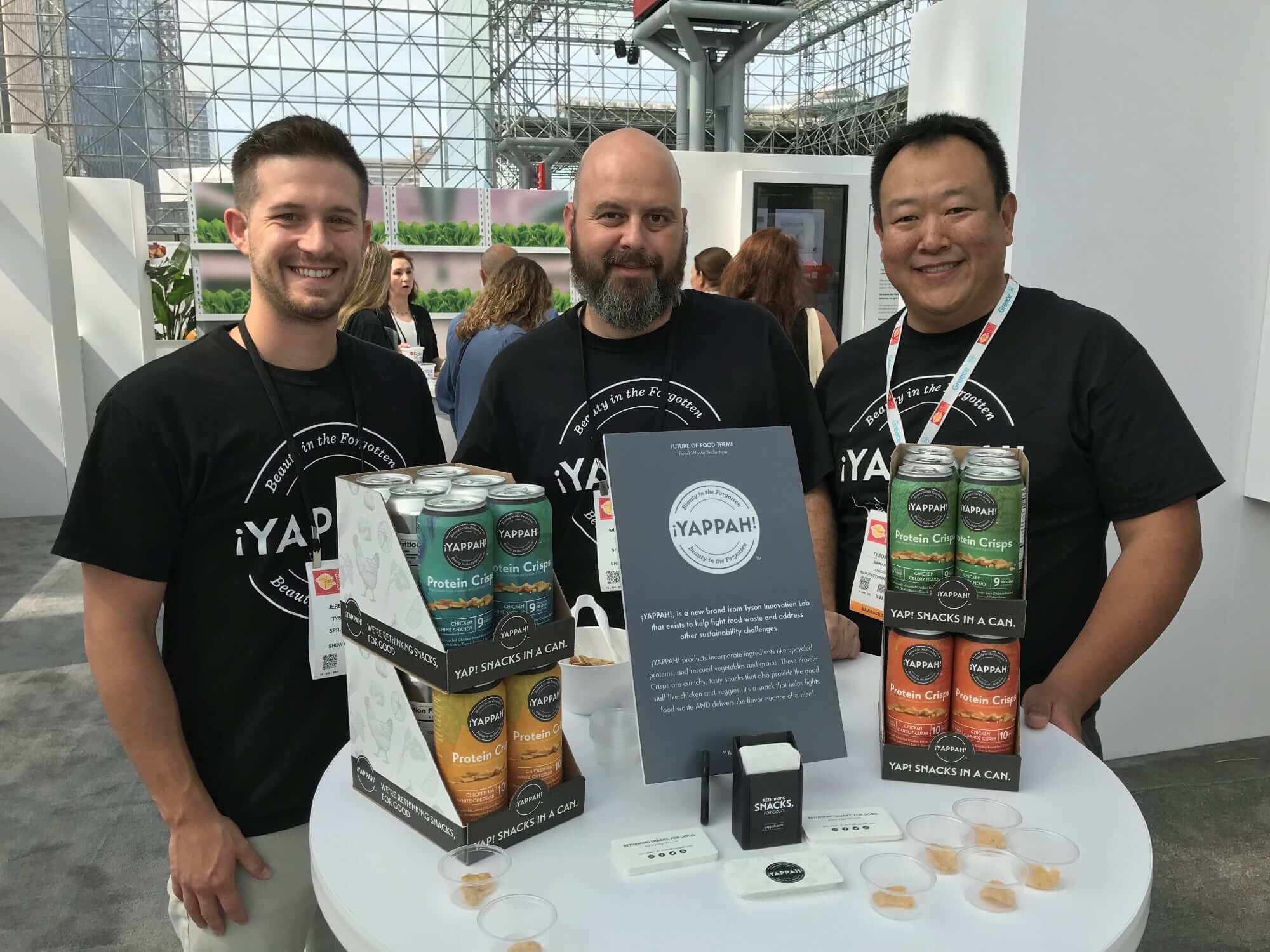
The innovative snack created by Taiwanese-born Kuan, trained as a chef at French Laundry & Morimoto, is the first product from Tyson Foods Innovation Lab, created in 2017 to stimulate R&D and bring new products to market faster.
Yappah! contains 8-10 grams of protein per serving and is packed in recycled aluminum cans — a package that complements the manufacturer’s mission of recycling food waste.
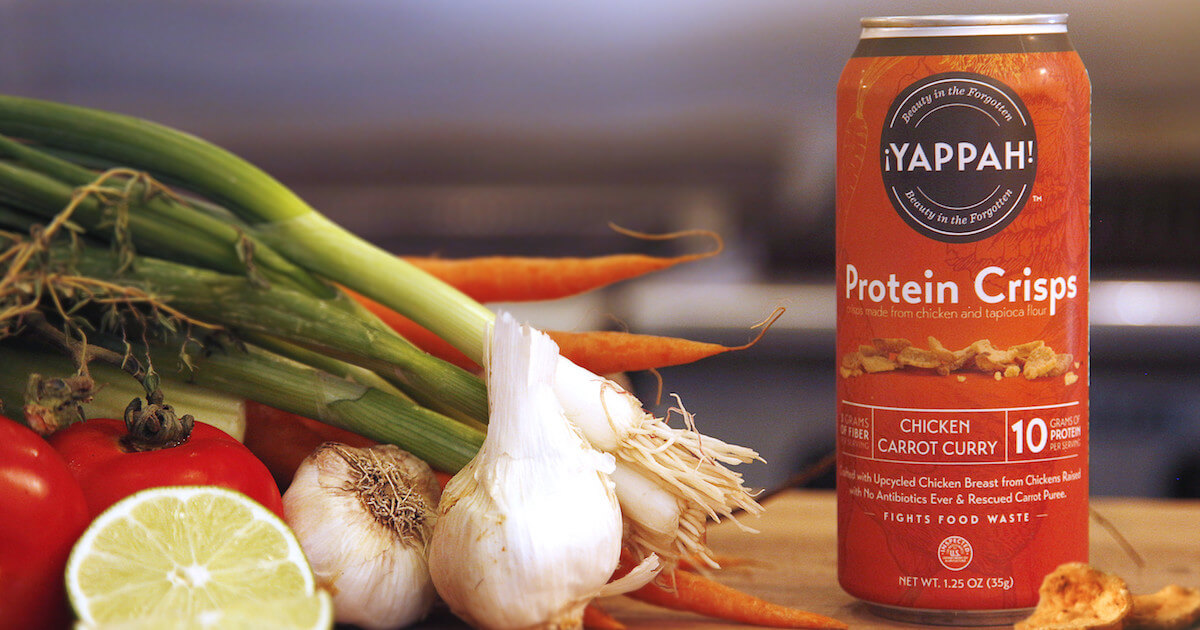
The manufacturing giant originally intended to make the Yappah! an umbrella brand for innovation, within which products were to be produced to solve social problems and sustainable development related to food.
Yappah! went through a series of trials before it was officially launched on the IndieGogo crowdsourcing platform in May 2018, followed by 90-day tests at a Chicago grocery store.
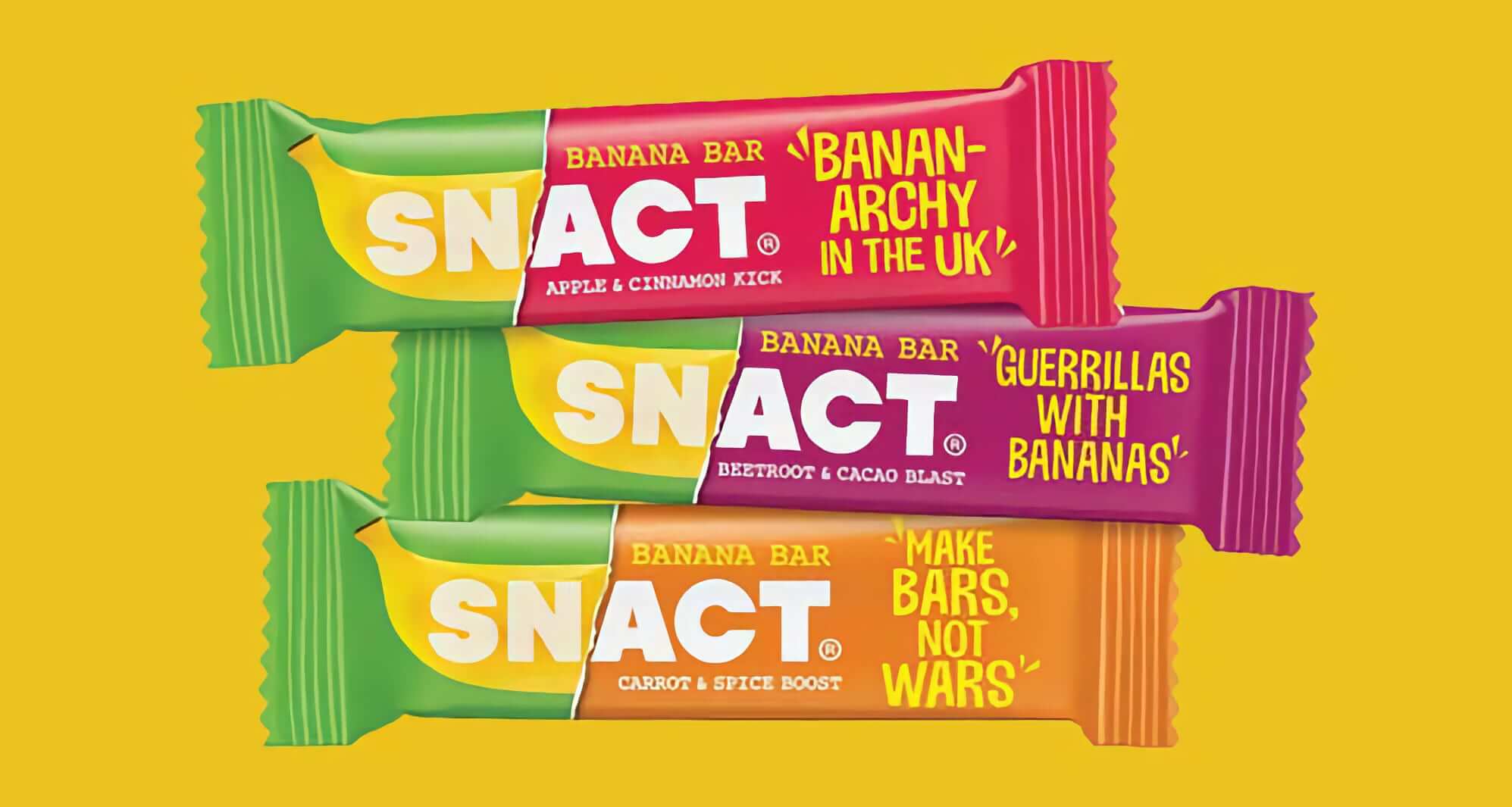
Snact, a UK based snack manufacturer, began its history in 2013, when founders Ilan Taub and Michael Minch-Dixon launched a line of jerky fruit from substandard and spoiled products they hand-picked in London’s wholesale markets. After a lot of trial and error and with the help of funds raised on a crowdfunding platform, the company was able to finalize the product and launch the novelty in the stores of the capital of England at the end of 2015. During all this time, the producer was able to “save” more than 150 tons of fruit from recycling.
By 2016, wholesome Snact snacks had hit offices and schools and were sold at Ocado, Amazon, Planet Organic, As Nature Intended, Sourced Market and many independent retailers across the UK and beyond.
In July 2017, the manufacturer added banana bars made from out-of-stock bananas to its growing upcycling portfolio. Vegan novelty is free from gluten, artificial flavors, colors or sweeteners and contains fewer than 130 calories per serving.
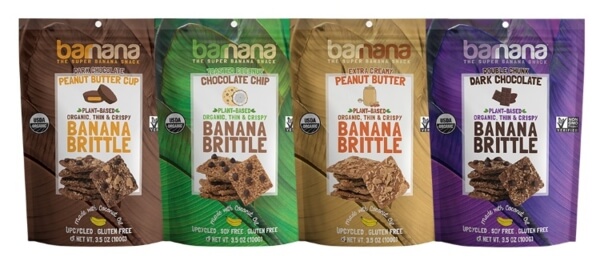
Talking about the perishable bananas that the upcycled foods industry uses as raw materials for their products, it’s worth mentioning the favorite one of investors — the Barnana company from Santa Monica, California. She could easily begin a story about the «second life» of crumpled, overripe and spoiled bananas, which were usually left to rot on banana plantations.
In 2012, the founders of Barnana wanted to end the food waste of banana farms. The company now sells dehydrated banana snacks in specialty and regular convenience stores throughout California. The company likes to remember that thanks to its production innovations, it has managed to «save» more than 20 million tons of bananas from destruction to date by processing them into delicious snacks.
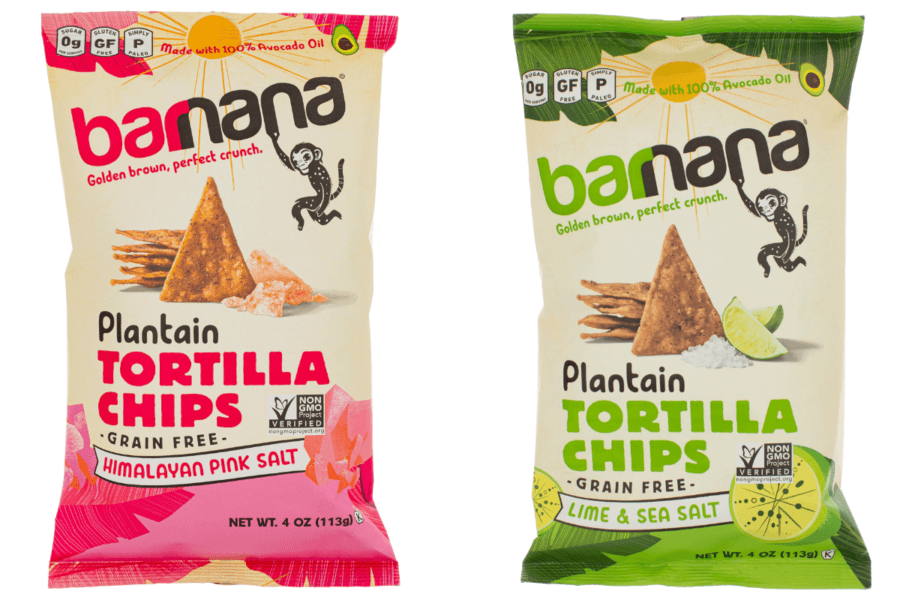
In 2020, the manufacturer delighted its fans with a novelty — chips made from ground bananas and plantain flour, cooked in avocado oil. 2 flavors of Plantain Tortilla Chips with Himalayan Pink Salt and Lime Sea Salt can be found at Whole Foods, Costco, CVS, Kroger, Safeway, and Amazon.
The manufacturer presented new packaging and a logo designed by Brazilian artist and illustrator Speto, considered one of the most talented graffiti artists in the world. Previously, Speto’s work was exhibited exclusively in museums, such as the Palais de Tokyo in Paris and the Afro Brasil Museum in São Paulo, now Speto’s quirky monkey Nana in the Barnana logo is helping to draw attention to the company’s mission to reduce food waste and promote regenerative agriculture in the Amazonian region, and the company has grown into a multi-billion dollar business by making snacks from bananas that would have to be disposed of.
More you can read in Part II…
